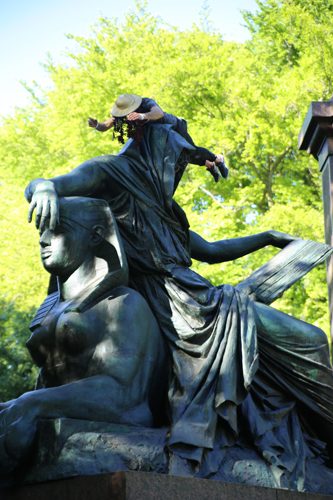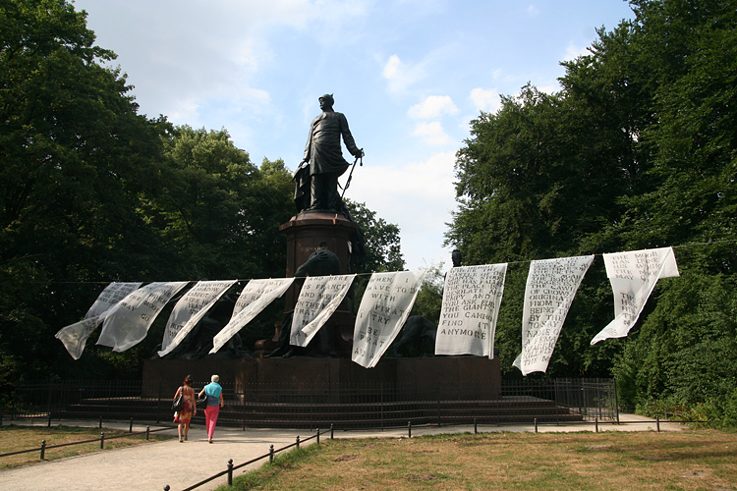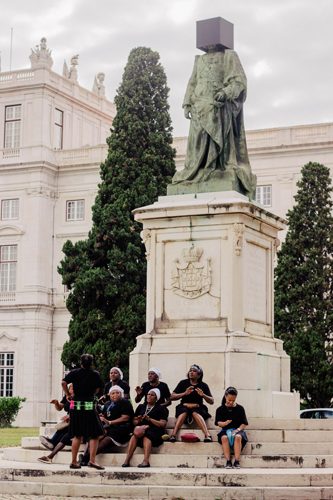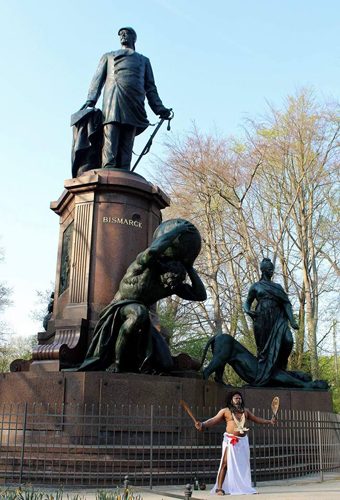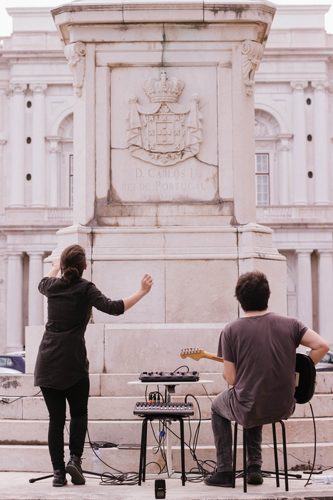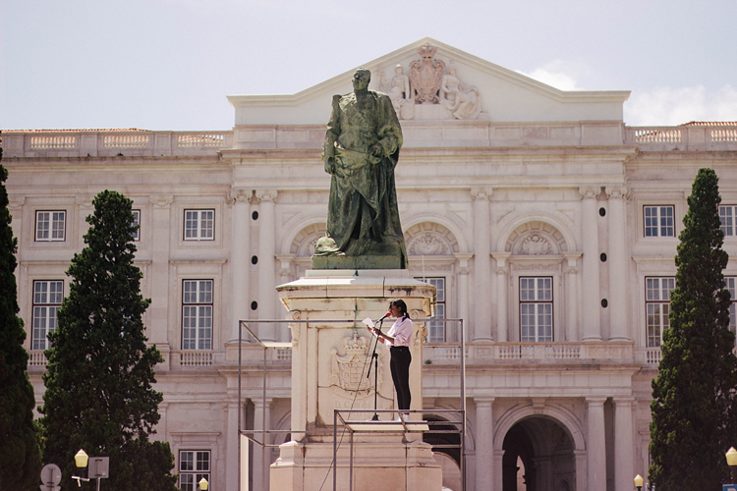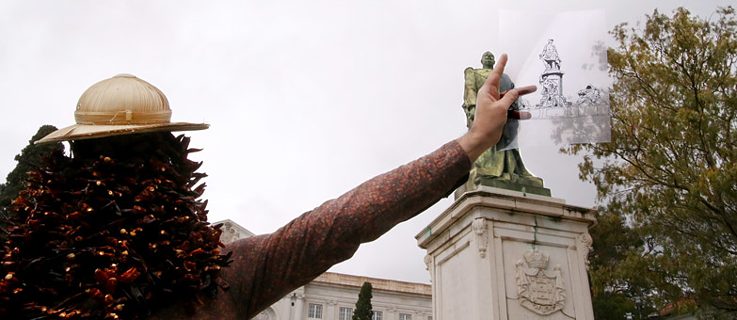DEMYTHOLOGIZE THAT HISTORY AND PUT IT TO REST
Hangar – Centro de Investigação Artística (Portugal), Savvy Contemporary (Deutschland), Gabinete de Estudos Olisiponenses (Portugal), Colonial Neighbours Archive (Deutschland)
„Demythologize that History and Put It to Rest“ versteht sich als performatives Gegen-Archiv. Es rückt die Denkmäler zweier historischer Persönlichkeiten in den Mittelpunkt, die während der sogenannten Kongokonferenz (1884/85) in Berlin enormen Einfluss auf die Kolonisierung Afrikas durch die europäischen Mächte ausübten: Otto von Bismarck (Tiergarten, Berlin) und König Karl I. (Palacio da Ajuda, Lissabon). Acht Performances von Künstlerinnen und Künstlern aus Angola, Kamerun, Gabun, Irak, Mosambik und Portugal setzen sich zum Ziel, diese beiden heroischen Denkmäler zu entkolonialisieren. Sie reagieren darauf, wie Geschichte im öffentlichen Raum aus- und dargestellt wird, und hinterfragen zugleich, inwiefern Kunst einen gesellschaftlichen Wandel hervorbringen kann. Die kollaborativen, künstlerischen Positionen werden im Rahmen zweier Ausstellungen bei Savvy Contemporary und Colonial Neighbors in Berlin und im Hangar – Centro de Investigação Artística in Lissabon gezeigt.
Partner: SAVVY Contemporary, Colonial Neighbours, Hangar, Gabinete de Estudos Olisiponenses | Künstler: Marcio Carvalho, Angela Ferreira, Kiluanji Kia Enda, Filia Cesar, Nathalie Mba Bikoro, Ali Alfatlawi, Whatiq Alameri, Christian Etongo | Unterstützt von: Goethe-Institut (Internationaler Koproduktionsfonds)
Dieses Projekt ist Teil der Runde 4 des Internationalen Koproduktionsfonds, Jahr 2017-2018.
